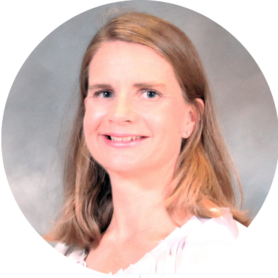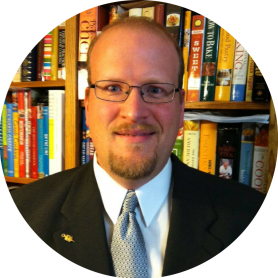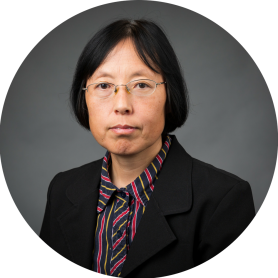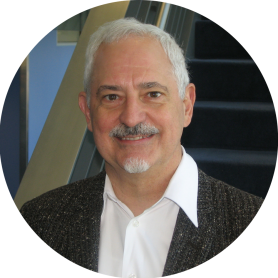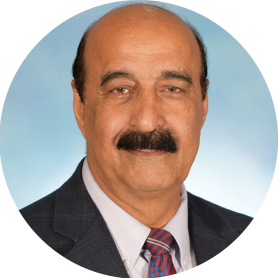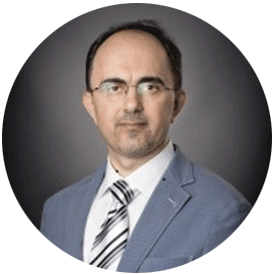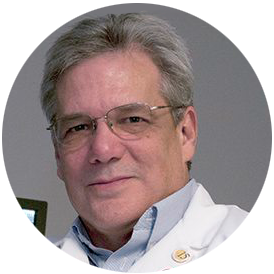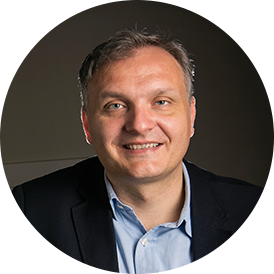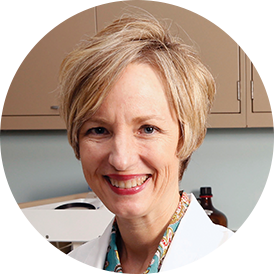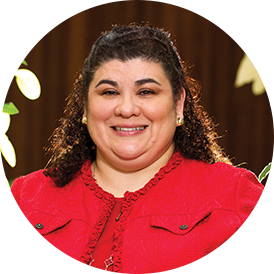PROGRAMS
ARA SCHOLARS
The Arkansas Research Alliance Scholars program serves as the cornerstone for ARA and plays a pivotal role in bridging university research and economic development. Scholars concentrate on Arkansas’s strongest and most commercially viable research competencies. Current research projects include drug development, stem cell research, cutting edge membrane technology and more.

Dr. John Imig
2023 ARA ScholarProfessor and Chair, Dept. of Pharmaceutical Sciences, College of Pharmacy University of Arkansas for Medical Sciences (UAMS)
Dr. Imig joined UAMS on September 29, 2022, from the Medical College of Wisconsin, where he was a tenured professor and Director of the Drug Discovery Center in the Department of Pharmacology & Toxicology. He is an accomplished scientist focused on cardiovascular, metabolic, and kidney diseases. He has been continuously funded through major grants from the American Heart Association, pharmaceutical companies, the Dr. Ralph and Marian Falk Medical Trust, and the Wisconsin Economic Development Commission, and currently holds major grants from the National Institutes of Health (NIH). Throughout his career, Dr. Imig has emphasized scholarship through the publication of approximately 250 articles, original papers, editorials and reviews, and has presented approximately 100 national and international lectures and workshops. He holds six U.S. patents and has several pending patent applications.

Dr. Edward Yeh
2021 ARA ScholarChairman, Department of Internal Medicine; Nolan Family Distinguished Chair in Internal Medicine, University of Arkansas for Medical Sciences (UAMS)
Dr. Yeh graduated from the University of California, Berkeley with a major in Biochemistry and received his medical degree from the University of California, Davis. He completed medical residency at the Boston VA Medical Center and did a post-doctoral fellowship in the laboratory of Nobel Laureate Baruj Benacerraf at Harvard Medical School. In 1987, he was appointed Assistant Professor of Medicine at the Massachusetts General Hospital and Harvard Medical School. In the early 1990’s, Dr. Yeh relocated to Houston to join the faculty of The University of Texas and the Texas Heart Institute. In 2000, he founded the Department of Cardiology at The University of Texas MD Anderson Cancer Center and developed a new field called Onco-cardiology that specializes on caring cancer patients who developed heart problems caused by cancer therapy. He was recruited to the University of Missouri at Columbia as Chair of the Department of Medicine and Director of the Center for Precision Medicine in 2016. In three years, he raised the department’s national ranking in NIH-funded research from 98 to 76. In 2020, he was appointed Chairman of the Department of Internal Medicine at the University of Arkansas for Medical Sciences and Nolan Family Distinguished Chair in Internal Medicine.

Dr. Teresita Bellido
2019 ARA ScholarProfessor and Chair, Department of Physiology and Cell Biology, UAMS
Dr. Bellido received her doctorate in biochemistry in 1988 and completed an initial postdoctoral fellowship in 1990 at the Universidad Nacional del Sur in Argentina. For the next three years she trained with Stavros Manolagas, M.D., Ph.D., while he was on faculty in the Endocrinology and Metabolism Section at the Roudebush Veterans Administration Medical Center at Indiana University. In 1993 Manolagas recruited Bellido to UAMS, where he continues to serve as director of the Division of Endocrinology and Metabolism and director of the UAMS/VA Center for Osteoporosis and Bone Diseases. Bellido holds multiple major grants from the National Institutes of Health (NIH) as well as a Veterans Administration Merit Award. She serves on the Skeletal Biology Development and Disease Study Section for the NIH. Bellido and serves as president of the American Society for Bone and Mineral Research (ASBMR), the ninth woman among 40 presidents in the society’s history and the first female president originally from Latin America.

Dr. David W. Ussery
2016 ARA ScholarDirector of ArC-GEM (Arkansas Center for Genomic and Ecological Medicine), UAMS
Dr. Ussery, has been working with bioinformatic analysis of bacterial genomes since 1995. His group has published more than 150 papers since 2000, including two papers that have been cited more than 1,000 times. He has been a co-applicant on grants totaling more than $30 million since 2010. His course on Comparative Microbial Genomics, taught at the Technical University of Denmark from 1997-2013, is currently in its 19th year. Workshops based on this course have been held in five countries.

Dr. Morten Olgaard Jensen
2015 ARA ScholarAssociate Professor of Biomedical Engineering, University of Arkansas
Morten Jensen’s research focuses on experimental cardiovascular surgery, seeking to create useful solutions with sophisticated technologies. He was appointed to the Danish Academy of Engineering and became the youngest person since 1965 to receive the prestigious “Elektroprisen.” His work has been published extensively in scientific journals, magazines and public media.

Dr. Peter A. Crooks
D.Sc. 2011 ARA ScholarChairman, Department of Pharmaceutical Sciences; Simmons Chair in Cancer Research, University of Arkansas for Medical Sciences (UAMS)
Peter Crooks has been involved in drug discovery research for over 35 years and currently has several drugs in various stages of clinical development. He and his team work in the field of anticancer drug research where they focus on new, effective treatments for a variety of complex cancers including leukemia, brain tumors, pancreatic cancer, and liver cancer.

Dr. Ranil Wickramasinghe
2010 ARA ScholarDistinguished Professor and Ross E. Martin Chair in Emerging Technologies in the Ralph E. Martin Department of Chemical Engineering at the University of Arkansas (UA)
Ranil Wickramasinghe has established a Membrane Science, Engineering and Technology Center at UA where he and his team focus on research that will lead to new advanced membranes and membrane-based separation processes for applications in the manufacture of human therapeutics, water treatment and production of biofuels.













